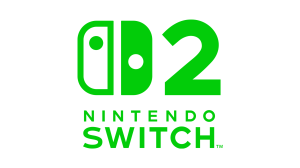The success of 20th Century Fox’s R-rated Marvel adaptation Deadpool 2 could help convince Disney to release more adult fare that otherwise doesn’t align with the family-friendly Walt Disney Pictures brand.
Videos by ComicBook.com
The Deadpool sequel opened to $125 million domestically with a $301 million global total over the weekend, making it a big hit for Fox, whose film and television assets were purchased by Disney in a $52.4 billion dollar deal in December that has yet to go through.
As the hit series transitions into X-Force — also likely to be R-rated, as it will star Ryan Reynolds’ foul-mouthed mercenary alongside Josh Brolin’s gruff badass Cable, who form a “black ops” team of mutants who operate as a more violent version of the X-Men — the question becomes how the Mouse House acquisition will shake out for Fox’s R-rated X-verse films after Wolverine swan song Logan and both Deadpool movies proved major hits with adult ratings.
“This is something that is going to come up a lot — the philosophy of Disney and how that would mesh with a Fox-based R-rated superhero property,” comScore box office analyst Paul Derbarabedian told Variety.
Ma-R-vel Studios

Disney CEO Bob Iger confirmed Fox-controlled properties X-Men, Fantastic Four and Deadpool would be integrated into the shared Marvel Cinematic Universe under the Marvel Studios banner, saying R-rated movies would be considered.
“[Deadpool] clearly has been and will be Marvel branded,” Iger told investors in a December meeting. “But we think there might be an opportunity for a Marvel-R brand for something like Deadpool. As long as we let the audiences know what’s coming, we think we can manage that fine.”
One option for the studio would be to release any R-rated Marvel films under the 20th Century Fox banner so they’re not directly associated with the Disney name.
“It’s more about marketing and messaging and differentiation of the Fox material. If they handle it right, it diversifies their portfolio even more,” Dergarabedian said. “You’ve just got to make it where the messaging makes it clear it’s not your grandpa’s Disney.”
Marvel’s Adult-Oriented Corner of the Marvel Cinematic Universe

Marvel is already in the “R-rated” business with TV-MA Netflix co-productions like Daredevil and The Punisher, which contain graphic violence, harsher language, and sexual situations. The series, alongside Jessica Jones, Luke Cage, Iron Fist, and The Defenders, are produced by Disney-owned Marvel Television and ABC Studios and set in the MCU, but are otherwise not associated with the Disney branding.
As superhero movies continue to dominate the box office — Black Panther and Avengers: Infinity War, released not long ago, have already become the ninth highest-grossing and fourth highest-grossing films of all time, respectively — meaning Disney isn’t likely to do away with box office heavy hitters like Deadpool because of an R-rating.
“If the success is there — why would you mess with that formula?” Dergarabedian explained. “If you only look at the cost-benefit ratio of a rating, creativity can really shrink. I don’t think that will happen.”
If It Ain’t Broke, Don’t Fix It

“The superhero market is oversaturated, though not necessarily fatigued,” box office analyst Jeff Bock told Variety. “Just about every superhero movie is a PG-13 adventure. This gives audiences something new. You can do a little more with an R-rated movie.”
“It’s time to explore darker space,” Bock said. “When you’re talking about fate of universe, there’s some bad sh—t that goes down, and it’s not always PG-13.”
Iger was in charge for Disney’s multi-billion dollar acquisitions of Pixar Animation Studios, Marvel Entertainment, and Lucasfilm, all of which operate mostly independently and have only grown more successful under the Disney umbrella. Once the Fox deal is completed, it’s unlikely Disney will fix what isn’t broken — especially when such big receipts are involved.
Grown-Up Labels

Disney hasn’t released an R-rated film since 2013 Benedict Cumberbatch WikiLeaks drama The Fifth Estate, which earned just over $3 million domestically and was only released because of a distribution deal with DreamWorks.
The studio mostly focuses on G or PG-rated family-friendly fare like animated $1 billion plus grossers Zootopia and Finding Dory, or live-action fairy tales Beauty and the Beast and A Wrinkle in Time.
Less than 20 years after the death of studio founder Walt Disney, the company — under then-Disney CEO Michael Eisner — established the Touchstone Films label to produce films aimed towards more mature audiences the more family-friendly Walt Disney Pictures otherwise couldn’t release, a practice first initiated with 1984’s Splash.
That banner saw the release of R-rated box office hits Pretty Woman, Enemy of the State, and Con Air, and PG-13 hits Armageddon, Pearl Harbor, Signs, and The Proposal. Disney similarly once owned and operated adult labels Hollywood Pictures, Miramax, and Dimension.
Disney Magic

Walt Disney Pictures wouldn’t release their first PG-13 bearing the castle logo until 2003’s Pirates of the Caribbean: The Curse of the Black Pearl. In the years since, PG-13s under the castle logo are rare, but Walt Disney Pictures regularly distributes PG-13 blockbusters like The Avengers and Star Wars: The Force Awakens.
Exploring R-rated fare could come with a risk of alienating parts of the Disney fanbase, Bock said, but releasing R-rated productions under a banner like Fox would be one way for Disney to mine successful “R” franchises without sullying the family-friendly Disney brand.
“There’s still a lot of conservatives out there that love Disney and what Disney is about — the fairytales and the magic. Anything that doesn’t jive with that will turn some consumers off,” Bock said. “As long as advertisers are on board, I don’t think Disney will have a problem.”
A New Beast

While some filmmakers have expressed worry about what might happen should Disney take control of Fox, the film industry should be optimistic, Dergarabedian said.
“When you combine the business acumen of Disney with the risk-taking nature of Fox, you can have pure magic. You’re going to turbocharge the marketing abilities and resources. It might spur greater risk-taking.”
As for R-rated superhero movies in the Disney cannon, “That’s not what they do,” Bock said. “This is a new beast for them to confront. It will be very interesting to see what they do going forward.”
Happy Meals and Action Figures

“If they’re actually changing their mandate, if what they’re supposed to do alters, that would be sad to me because it just means less movies,” Logan director James Mangold said in December of the Disney-Fox deal after a screening of his R-rated X-Men spinoff. “I just hope what we end up with is going to be a positive in terms of movies.”
Mangold went on to say making an R-rated movie means the studio has to “adjust to the reality that there will be no Happy Meals. There will be no action figures.”
“The entire merchandising, cross-pollinating side of selling the movie to children is dead before you even start,” he said. “And when that’s dead, it means you’re making a grown-up movie.”
The gritty and gory Logan had the opportunity to axe longtime popular characters Wolverine (Hugh Jackman) and Professor Xavier (Patrick Stewart), a freedom Mangold said other movies lack because of their place in the studio machine.
“We’ve now so co-opted this idea that these movies are not really stories, but are merchandise entities,” Mangold said. “You can’t kill the characters because they’re worth so much effing money.”
Marvel Studios’ latest, Avengers: Infinity War, boasted a hefty body count — even if most of its many deaths are expected to be undone come time for Avengers 4 as several currently-dead characters have already proved their A-list mettle at the box office and have future sequels in the works.
Infinity War, released less than a month ago, has already established itself as the highest-grossing superhero movie of all time and the fourth highest-grossing movie of all time, behind only James Cameron’s Avatar and Titanic, and Disney’s own Star Wars: The Force Awakens.








